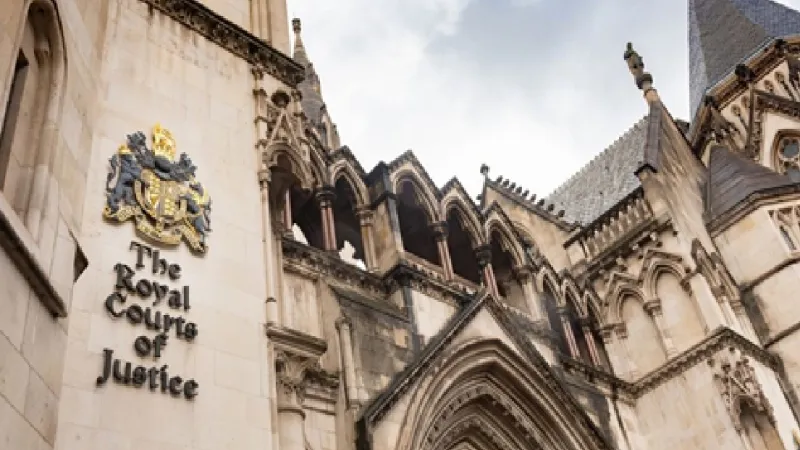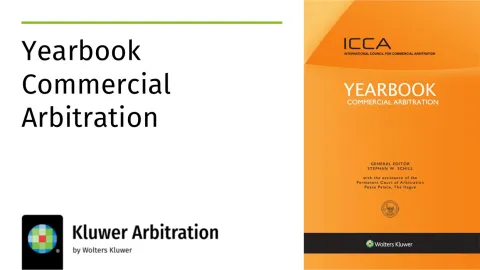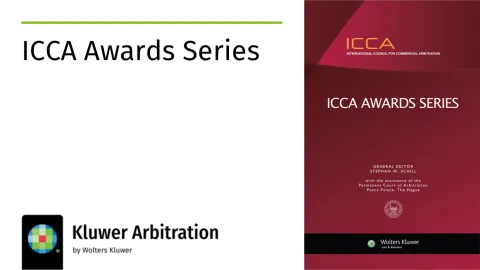A Rare Successful Challenge Under Section 67 in Rakia v. India
August 13, 2025
On 20 June 2025, Knowles J of King's Bench Division issued his judgment in Ras Al Khaimah Investment Authority v Republic of India [2025] EWHC 1553 (Comm) overturning the award (the "Award") of a tribunal constituted pursuant to the UNCITRAL arbitration rules (the "Tribunal"). The award declined jurisdiction under the 2013 bilateral investment treaty between India and United Arab Emirates (the "BIT"). The Tribunal was composed of Lord Hoffmann (Chair), Justice Chandramauli, and William Rowley KC. The Award was challenged by Ras Al Khaimah Investment Authority ("RAKIA") under Section 67 of the Arbitration Act 1996 (the "Arbitration Act") on grounds of substantive jurisdiction.
In this post, we summarise the factual background and the critical findings of the High Court that led to the overturn of the Award and provide a commentary.
Factual Background
In 2007, the Government of Andhra Pradesh (India) (the "Host Government") and the Government of Ras Al Khaimah (UAE) agreed to jointly establish Alumina Plant and Aluminium Smelter in Andhra Pradesh (the "Project"). In particular, it was agreed that RAKIA – will develop the Project through a local subsidiary, while the Host Government will supply bauxite from local mines through its subsidiary Andhra Pradesh Mineral Development Corporation Limited (“APMDC”).
Pursuant to these arrangements, RAKIA incorporated a local company called ANRAK and invested US$42.5 million into the Project.
In 2008, APMDC signed a Bauxite Supply Agreement with ANRAK (the "BSA"). The Project was completed in 2013. By 2015, it had obtained all required permits and was on the verge of operation. Following public protests, however, in December 2015, the Host Government announced it would cancel the BSA.
On 6 April 2016, the Host Government issued Order 44 ("GOM 44") reversing its previous orders approving the BSA and directing that the APMDC "shall take necessary action accordingly in the matter". On 28 April 2016, the Host Government wrote to APMDC drawing attention to GOM 44 and requesting that APMDC "take necessary action accordingly duly following the procedure and the conditions laid down in the [BSA] immediately, under intimation to the Government".
On 20 June 2016, APMDC wrote to ANRAK to show cause as to why the BSA should not be terminated ("Show Cause Letter").
On 21 November 2016, APMDC wrote to ANRAK to terminate the BSA ("Termination Letter").
The BIT
The BIT provided for arbitration under the UNCITRAL Rules in relation to disputes arising out of measures of state governments.
Notably, Article 1 of the BIT defined "Measure" as "any form of binding action taken by a Contracting Party under any law, rule or regulation and applied directly to an Investment".
The BIT defined "Investment" as " every kind of asset invested by the Investors of one Contracting Party in the territory of the other Contracting Party" and provided a non-exclusive list of such assets, including movable and immovable property, shares and stocks, claims to money, and any right conferred by law or by licences or permits.
The Award
The Tribunal issued its Award on 11 May 2022, concluding that it did not have substantive jurisdiction to resolve the dispute under the BIT.
It found that APMDC's repudiation of the BSA could be treated as an act of the Host Government, that it caused loss to ANRAK, and diminished the value of RAKIA's shares in ANRAK. However, the Tribunal determined that the acts in question had an indirect effect on RAKIA's investment and were directly applied only to APMDC and ANRAK. Thus, the Tribunal concluded that they did not constitute Measures applied directly to an Investment.
The High Court's Decision
Treaty Interpretation
Knowles J started his analysis by determining the applicable rules to the question of treaty interpretation. He referred to Article 31 of the Vienna Convention on the Law of the Treaties ("VCLT") setting out the general rule of interpretation under international law and relied on Moohan v Lord Advocate [2014] UKSC 67to conclude that all means of interpretation in Article 31 are to be applied in a single combined operation.
In the specific context of interpreting dispute resolution provisions in investment treaties, Knowles J referred to Swissbourgh v Lesotho [2018] SGCA 81 and agreed that such jurisdictional provisions are to be interpreted neither liberally, nor restrictively.
RAKIA's "Investment"
The Judge observed that the central issue was whether "Measures" were "applied directly" to RAKIA's Investment and, for that reason, it was important to establish the full extent of the assets invested by RAKIA in India.
The Tribunal found that RAKIA's investment was limited to its shares in ANRAK, but Knowles J determined that RAKIA invested US$42.5 million in the shares in ANRAK and the pledge of ANRAK's shares in RAKIA's shareholding relationship with Penna. All those assets constituted RAKIA's protected Investment under the BIT.
The Host Government’s Actions Were Applied Directly to Rakia’s Investment
Having identified the specific assets owned by RAKIA that constituted protected Investment, Knowles J proceeded to the central issue – whether the Host Government's actions were "Measures" applied directly to the Investment as required by the BIT to establish the Tribunal's jurisdiction.
First, the Judge disagreed with the Tribunal that GOM 44 and the Show Cause and Termination Letters were not a "binding action" within the meaning of the BIT. The Tribunal's conclusion was premised on its understanding that "GOM 44 did not itself cancel the BSA", but Knowles J observed that this was not the complete picture – GOM 44 set in motion the termination and was followed by the Host Government's letter to APMDC directing it to "take necessary actions" and then the Show Cause and Termination Letters. On that basis, the judge concluded that GOM 44 was a binding executive action to alter or end the BSA.
Second, Knowles J turned to the question of whether GOM 44 was applied directly to RAKIA's Investment. He pointed out that the Tribunal's decision that GOM 44 applied directly to ANRAK but not to RAKIA's shares in ANRAK was premised on the concept that loss caused to a company is not loss caused to its shareholders when the matter is whether the company itself or the shareholders can claim against the person that has caused the loss (the common law principle of reflective loss). However, in the context of the BIT, the only relevant claim was that of the Investor (i.e., RAKIA).
Through this prism, in GOM 44, the Host Government had acted directly to end the supply of bauxite and, with that, the establishment of the Project. For the Judge, this was a Measure applied directly to RAKIA's Investment as it targeted the specific Project. Thus, Knowles J determined that the word "directly" in the BIT should be interpreted as an action that targeted the Investment in question.
For that reason, the Judge found that the Tribunal erred in declining to exercise substantive jurisdiction and overturned the Award.
Comment
Under Section 67 of the Arbitration Act 1996, a party to arbitral proceedings may apply to the English court challenging any award of the arbitral tribunal as to its substantive jurisdiction. Such challenges on the grounds of substantive jurisdiction rarely succeed. The recently published Commercial Court annual report 2023-24 revealed that out of 31 Section 67 challenges in the period 2022-2024, only 1 was successful.
This is reflective of the well-established principle that the arbitral tribunal is master of its own jurisdiction (kompetenz-kompetenz principle incorporated in Section 30(1) of the Arbitration Act) and that courts will typically pay a measure of deference as to the tribunal's findings on its own jurisdiction.
RAKIA v India shows that there are limits to this deference, and the judiciary will intervene where necessary to correct arbitral awards.
From a legal standpoint, the key matter of substantive jurisdiction was the interpretation of Article 1(8) of the BIT, which defines a "Measure" as "any form of binding action taken by a Contracting Party [...] and applied directly to an Investment". This jurisdictional requirement is rather specific, and it limits the scope of international protection (both substantive and procedural) to acts of the host State that have direct application to specific investments as opposed to general acts adopted over the course of governmental regulation of specific sectors or industries. Similar limitations appear in one of the drafts of the 2015 Model India BIT (Article 1.11).
From a factual perspective, the central issue was whether GOM 44 and the 28 April 2016 letter qualified had direct application to Rakia's investment. The Tribunal declined to exercise jurisdiction based on a narrow interpretation of "directly", determining that the sovereign act in question was applied directly to the local company, but did not have direct application to the shares in that company owned by the foreign investor (RAKIA).
In our view, Knowles J rightly determined that such a formalistic interpretation ignored the fact that GOM 44 was aimed at terminating the Project and thus directly targeted the foreign investment. Protection from such actions was the very purpose of the BIT. Knowles J thus took into account the overriding objective of the Host Government's actions and their result on the Project as a whole and on the foreign investment at hand.
Curiously, this is the second time in recent years that Knowles J upholds a challenge of an award issued by a tribunal chaired by Lord Hoffmann after his seminal judgment in P&ID v Nigeria [2023] EWHC 2638 (Comm).
You may also like











